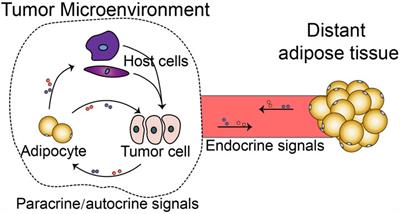EDITORIAL
Published on 19 Oct 2022
Editorial: The adipose tissue microenvironment in cancer: Molecular mechanisms and targets for treatment

doi 10.3389/fcell.2022.954645
- 1,564 views
- 2 citations
19k
Total downloads
68k
Total views and downloads
Select the journal/section where you want your idea to be submitted:
EDITORIAL
Published on 19 Oct 2022

ORIGINAL RESEARCH
Published on 02 Mar 2021

ORIGINAL RESEARCH
Published on 11 Jan 2021

MINI REVIEW
Published on 27 Nov 2020

ORIGINAL RESEARCH
Published on 26 Nov 2020

MINI REVIEW
Published on 22 Sep 2020

ORIGINAL RESEARCH
Published on 21 Aug 2020

ORIGINAL RESEARCH
Published on 11 Jun 2020

ORIGINAL RESEARCH
Published on 25 May 2020

MINI REVIEW
Published on 28 Apr 2020

ORIGINAL RESEARCH
Published on 07 Apr 2020

ORIGINAL RESEARCH
Published on 18 Feb 2020


Frontiers in Oncology